In recent years, immigration has been an especially controversial and prevalent subject. Whitworth students had an opportunity to hear the personal stories of migrant workers residing in Washington, in addition to a unique Biblical perspective on immigration.
Andrew Lewis, a 2012 Whitworth alum, spoke alongside Salvio and Victoria Hernandez. Together, the three work at Tierra Nueva, which translates to “new earth,” an international Christian ministry in Burlington, WA that serves people on the margins of society.
Salvio and Victoria Hernandez gave students insight into their lives as migrant workers.
“Being an immigrant in this country is not easy, it’s really hard,” said Salvio Hernandez. “I suffered, but I’m so happy.”
Salvio Hernandez first came to the U.S. at the age of 13. He grew up very poor, in part due to his alcoholic parents. To him, the U.S. was an opportunity to help his family, especially his youngest brother and sister. He said he never imagined how hard he would have to work and the physical toll of the difficult labor.
Migrant workers only ever make enough money to survive. They have to take the jobs that nobody else wants to do, and often work 9-10 hours a day. These jobs usually are related to farm work. According to Fresh Fruit, Broken Bodies by Seth M. Holmes, migrant farm workers are paid by weight, not hours. Therefore, in order to meet minimum wage, workers skip breaks, with many choosing not to eat or drink to avoid bathroom breaks.
“We have these perceptions in the U.S. of people who are taking advantage of our wealth or whatever,” said Betty Hale, a sophomore who attended the lecture. “But I don’t think that we think as much about where they’re actually coming from, or the things that they’ve actually had to suffer through.”
Lewis gave a brief history of U.S migration policy. Before the 1990’s, the bulk of deportations occurred at the border. This changed after Sept. 11, 2001, and most of the deportations became within the country. More governmental controls were created, such as the Illegal Immigration Reform and Immigration Responsibility Act, the Department of Homeland Security and the U.S. Immigration and Customs Enforcement.
In 2014, the Priority Enforcement Program (PEP) was created to focus on deporting criminals rather than families. However, the new administration ended PEP and increased border security and immigration enforcement. Many of the new policies affect migrant youth, where there is an increasing amount of children within detention centers, and parents or relatives of unaccompanied minors may be subject to deportation. The termination of the 1997 Flores Settlement Agreement may be among the largest factors currently affecting migrant youth, because there is no more guarantee of a certain quality of life for detained children or that they will be released within 20 days of detainment.
Salvio Hernandez described the trauma that families undergo when a parent is deported. As part of his job, he goes to the homes of immigrant families to encourage them and study the Bible with them. Children have told him how scared they were when he knocked on their door, fearing he was an immigration officer here to deport more of their family. He said, “my heart is broken” upon seeing the fear that these children suffer through.
Lewis also explained how the media and government have labeled migrant youth with several key terms such as “gangsters,” “criminals,” “terrorism,” and “invasion.”
“The labels and images assigned to migrant youth are very numerous and glued together to make this picture, this narrative, that tells a particular story. I want to question whose voice can really be trusted in these schemes of rhetoric and story,” said Lewis.
Instead, Lewis created a different rhetoric to “combat the lies.” He posed that governing politics is correlated to gang violence, not one’s identity, such as ethnicity or status as a migrant. Lewis also reminded the audience that it is a legal right to claim asylum from the interior of the U.S. and Mexico regardless of the mode of entry.
Lewis suggested that a way to reframe our perspective is to approach it with a different Biblical understanding. After Jesus was born in Bethlehem, Herod ordered to kill all the male children under 2 years old. Jesus’ family fled to Egypt, and then back to Nazareth.
“Jesus came into the world as a refugee, and a migrant in that sense,” said Lewis. “I just want us to think about how we might envision who Jesus identifies with.”
A depiction of Jesus as an immigrant can be seen in Everett Patterson’s artwork, José y Maria, which portrays Mary and Joseph in a modern light.
Immigrants can be viewed as people who have been put on a cross, or rather, used as scapegoats. Lewis said that society punishes a certain type of people so we can feel this sense of freedom and security.
“When we look at people who have been scapegoated, we see Jesus. It’s about all the people today who are experiencing that, and it’s our goal today to take them off of whatever their cross is,” said Lewis.
Over 100 students were able to attend the event and learn about the Hernandez’s experiences as migrant workers, as well as Lewis’ reframing of the migrant story.
“Our guests from Tierra Nueva gave us the gift of their story, and we had the opportunity to learn new perspectives about experiences most of us have never had nor can imagine,” said Professor Kim Hernandez, who organized the event. “At the same time, there were many students in the audience whose family backgrounds include very similar stories. Their experiences were acknowledged through this event.”
For more information about Tierra Nueva, visit their website here.

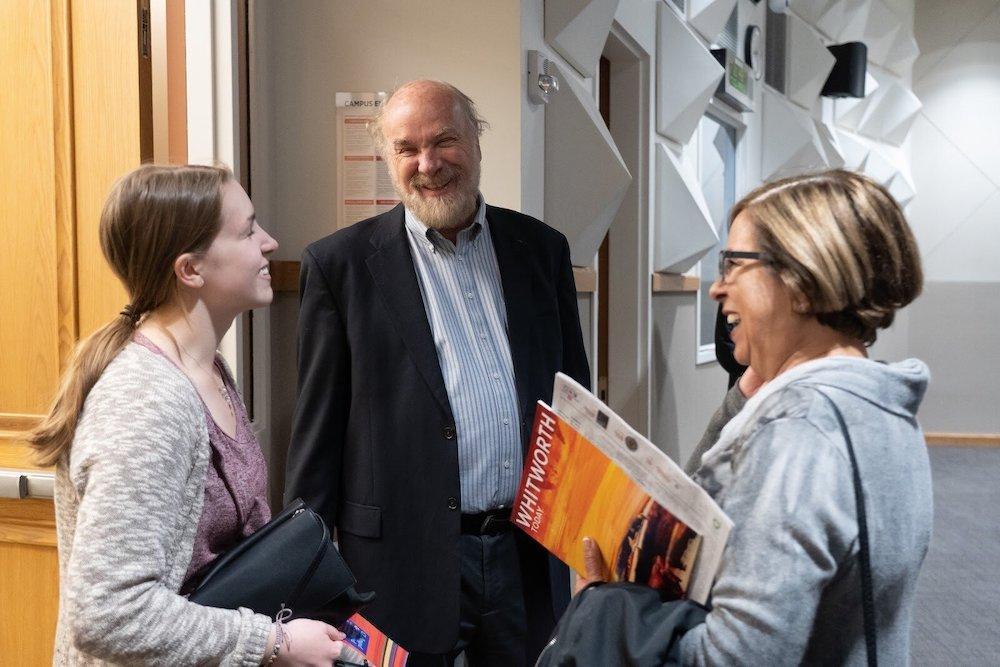
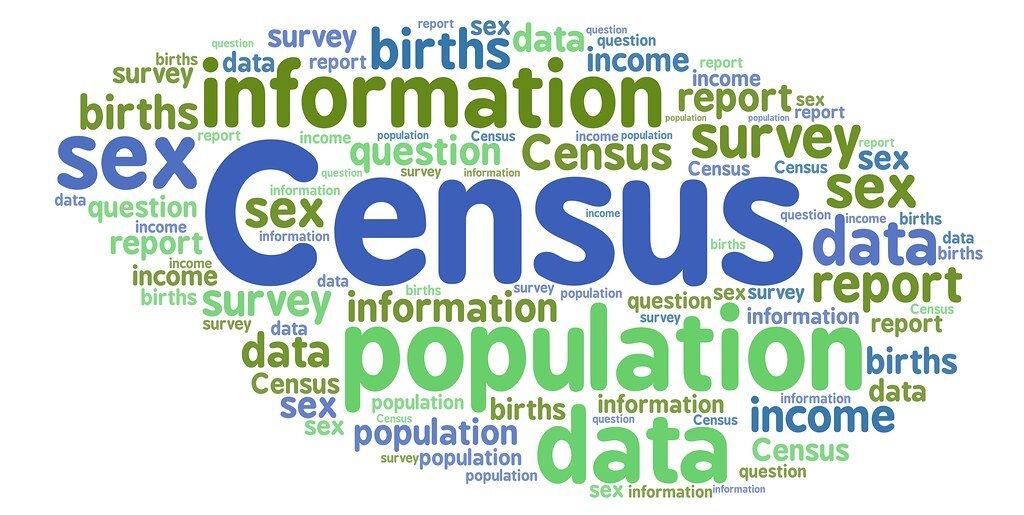








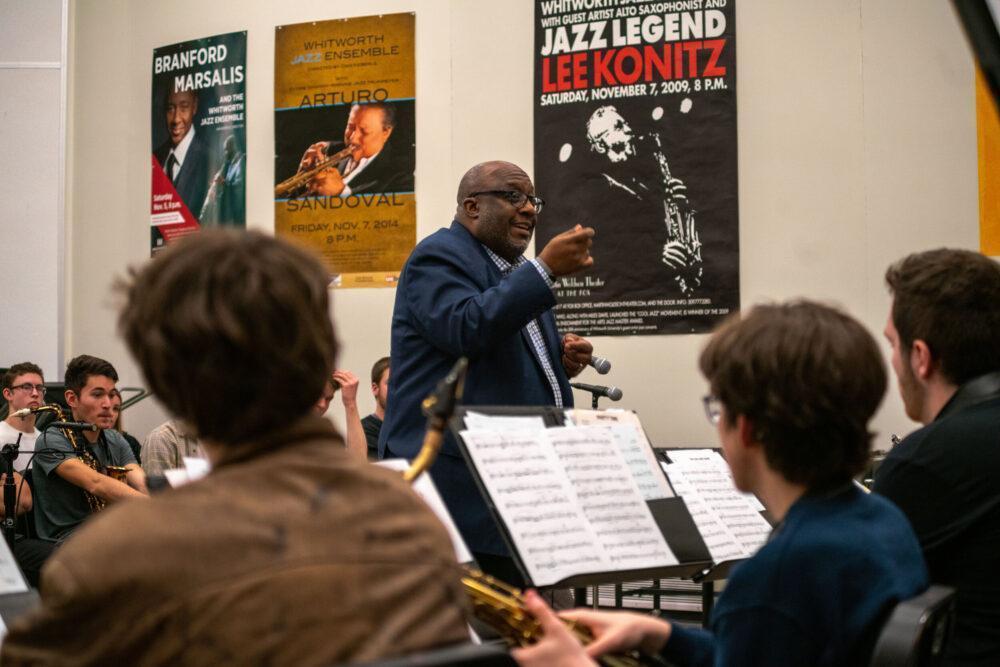
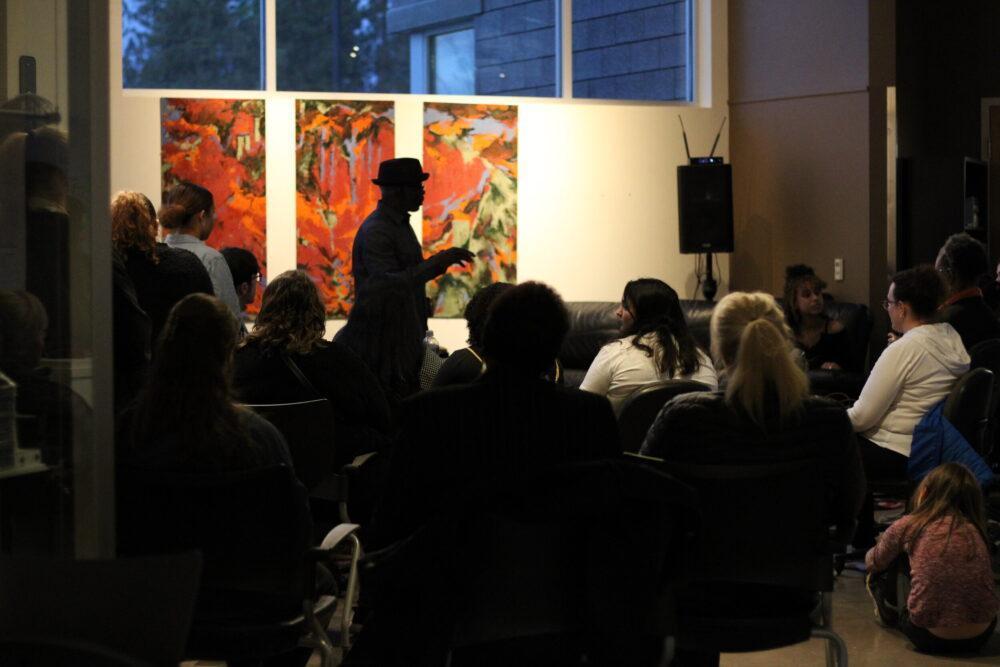
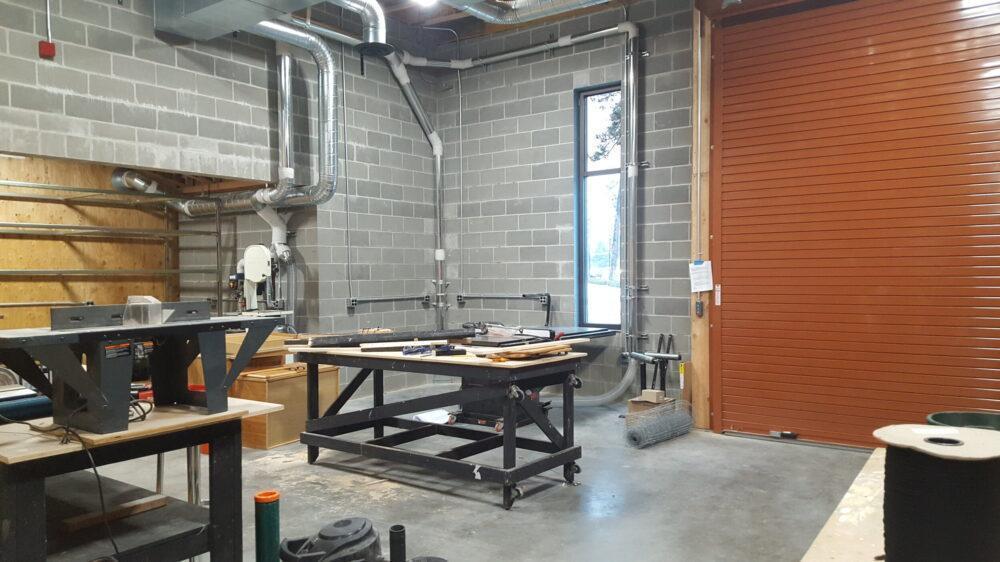
 Spokane?
Spokane?